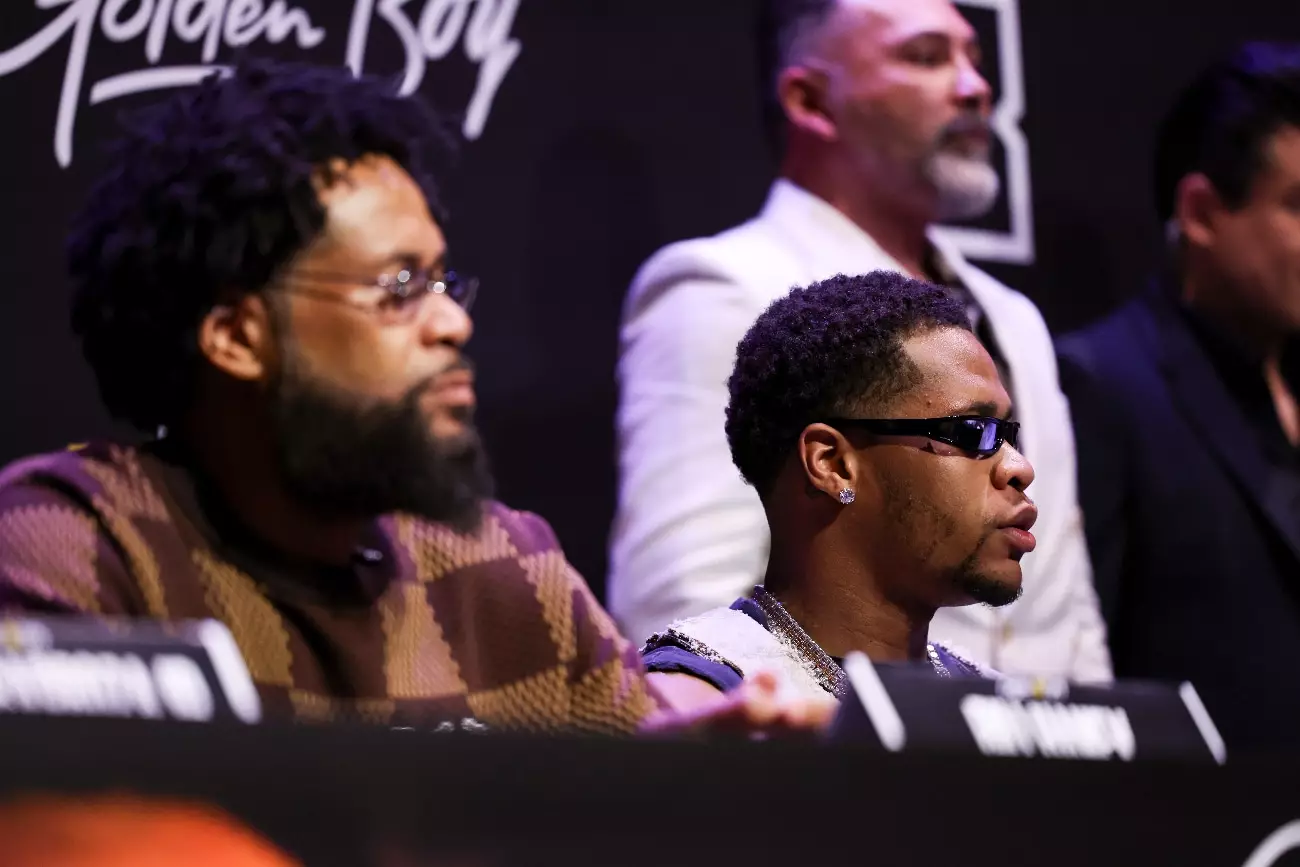The modern landscape of boxing has seen a significant and transformative shift in recent years, with social media influencers now finding themselves embedded within the sport’s fabric. A telling example of this evolution emerged when Bill Haney, the father and trainer of boxer Devin Haney, shared a video praising Jake Paul, the YouTube sensation turned professional boxer. This moment was more than just an endorsement for a fellow fighter; it signaled a potential fork in the road for young Devin Haney, especially following his recent defeat to Ryan Garcia.
Devin Haney’s loss to Garcia has cast a long shadow over his career. Once considered an elite fighter in the 140 and 147-pound divisions, the reality of the boxing world after such a setback is daunting. It is crucial to understand the ramifications of this loss not merely on Haney’s immediate career prospects but on the legacy of traditional boxing itself. The sport has always revered the legacies of its champions, but the allure of social media and entertainment dynamics now forces young fighters to navigate a landscape that prioritizes profitability over accolades.
Bill Haney’s enthusiasm for Jake Paul’s hustle is a revelation in this context. As the boxing industry grapples with the transition from a sport defined by its champions to one influenced heavily by social media and entertainment values, it becomes clear that traditional markers of success may no longer hold the same weight. The importance of gate sales, viewer engagement, and social media followers is now overshadowing the virtues of legacy and titles.
Drawing Parallels with Jake Paul’s Success
Bill’s video undoubtedly raised eyebrows, as he boldly proclaimed Jake Paul as “the face of boxing,” while simultaneously asserting Devin Haney’s role as the “heartbeat” of the sport. This characterization implies a new paradigm where financial success and drawing power have supplanted traditional competitive accolades. Indeed, if the popularity and profit generated by fighters like Paul play a substantial role in defining success, then Haney may need to pivot his strategies to remain relevant.
Moreover, Bill Haney’s comments highlighted a potential strategic path for Devin. If he intends to rebuild his career, he might consider emulating the business models that Paul has adopted—taking on older fighters or celebrities who attract novelty and attention. The potential opponents listed, including notable names like Conor McGregor and Oscar De La Hoya, underline an emerging trend of boxing matches that prioritize celebrity over competitive integrity.
However, while this approach may provide lucrative opportunities, it certainly risks diluting the essence of boxing. If Devin were to continue competing against active, formidable fighters, the prospects do not look promising. Matchups against fighters such as Gervonta Davis, Teofimo Lopez, or Shakur Stevenson indicate an uphill battle, particularly given Haney’s recent performance. With pundits questioning his punch resistance and ability to remain competitive, many fans predict that such fights could further tarnish his reputation.
Thus, the question arises: is this the future that boxing fans want? A sport defined by celebrity and viral moments rather than the skill, grit, and tradition that originally characterized pugilism? Moving forward, if Devin Haney and his camp decide to follow in the footsteps of Paul, they will undoubtedly find a profitable niche, albeit one that strays from the sport’s legacy.
As the boxing world faces these sweeping changes, it remains uncertain how it will all play out. On one hand, we are witnessing the emergence of a segment of boxing that thrives on entertainment, engagement, and social media. Conversely, traditionalists will stand firm in valuing competitive integrity and legacy. The future is unclear, but Bill Haney’s comments mark a profound moment in the sport’s evolution, highlighting a necessity for adaptability in a landscape driven by both hustle and fame. The question isn’t just about who the face of boxing is anymore; it’s about how the sport will re-establish itself in an era of distractions and fast-paced entertainment. What remains, however, is the heartbeat of Real Boxing, which we hope will continue to pulse through this transformative time.

